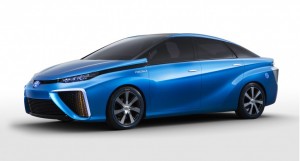After reading Jackie’s article about Toyota and their new hydrogen powered car set to launch in 2015, I understood the surrounding criticism. Initially, I would expect that Toyota’s ability to innovate within an industry would make their new model a hot commodity. However, Jackie argues that the benefits of driving a fuel cell car and an electric car are similar. She adds that the consumers will be uncertain about the premise of hydrogen cars. Therefore, it would be difficult to sway consumers away from electric cars and towards hydrogen cars.
The inevitable problem of needing to create a market is not necessarily a bad one. Toyota faces a very similar problem they had in 1997 when they first introduced hybrids. However, by becoming the first supplier of hybrids, Toyota gained a huge competitive advantage over its future competitors. Al Ries and Jack Trout describe this as “getting into the mind of a consumer.” Evidently, the Toyota Prius is currently the best selling hybrid / electric car in the US. I agree with Jackie’s assumption of the difficulties involved in pushing for a fuel cell vehicle. Problems such as a complete lack of global hydrogen fuelling stations can single handedly dissuade consumers. Nevertheless, in the long run, these problems are fixable; if fuel cell vehicles become mainstream within the auto industry, Toyota will benefit by having become the first entrant into the market. This is why I believe Toyota is making the right decision, despite the surrounding criticism of the 2015 Toyota FCV.
